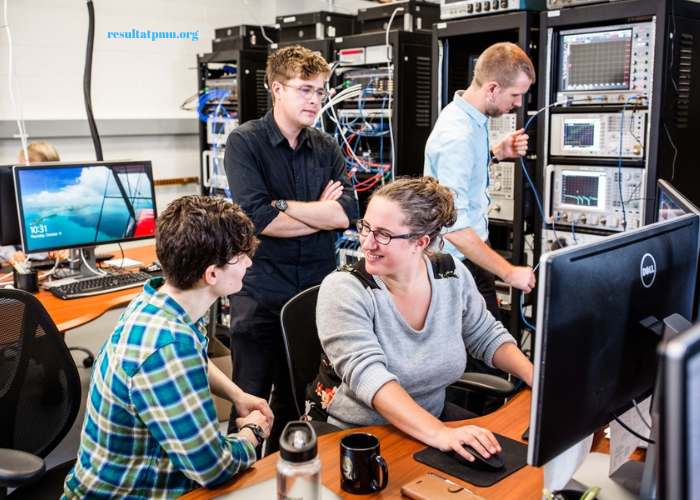Quantum computing represents a significant paradigm shift in the field of computing, leveraging the principles of quantum mechanics to process information in ways that classical computers cannot. While traditional computers rely on bits as the smallest unit of data, quantum computers utilize qubits (quantum bits), which can exist in multiple states simultaneously. This fundamental difference enables quantum computers to perform complex calculations at unprecedented speeds, thereby unlocking new potentials across various domains, from cryptography to material science. This article explores the concept of quantum computing, its potential applications, the challenges it faces, and the implications it holds for the future of technology.
Understanding Quantum Mechanics
Before diving into quantum computing, it is essential to grasp the basic principles of quantum mechanics, the branch of physics that underpins this technology. Quantum mechanics introduces several key concepts that differentiate it from classical mechanics:
- Superposition: In classical computing, a bit can be either 0 or 1. However, a qubit can represent both 0 and 1 simultaneously due to superposition. This capability allows quantum computers to perform multiple calculations at once, significantly enhancing processing power.
- Entanglement: Entanglement is a phenomenon where qubits become interconnected in such a way that the state of one qubit can instantly influence the state of another, regardless of the distance between them. This property enables quantum computers to perform complex calculations that involve multiple qubits, leading to exponential speedup in solving certain problems.
- Quantum Interference: Quantum interference allows quantum algorithms to amplify the probability of correct solutions while canceling out incorrect ones. This capability is crucial in optimizing search problems and improving the efficiency of quantum algorithms.
How Quantum Computing Works
At the heart of quantum computing lies the quantum gate, which manipulates qubits through various operations. Unlike classical gates that perform logical operations, quantum gates can create superposition and entanglement, enabling quantum circuits to perform complex computations. Quantum algorithms are then implemented through sequences of quantum gates, allowing quantum computers to solve problems that are currently intractable for classical computers.
One of the most well-known quantum algorithms is Shor’s Algorithm, which can factor large numbers exponentially faster than the best-known classical algorithms. This capability poses significant implications for cryptography, particularly in the context of public-key cryptography, which relies on the difficulty of factoring large numbers. Another important algorithm is Grover’s Algorithm, which provides a quadratic speedup for unstructured search problems.
Applications of Quantum Computing
The potential applications of quantum computing span a wide range of fields. Some of the most promising areas include:
Cryptography
As mentioned earlier, quantum computing threatens traditional cryptographic methods, particularly RSA encryption. Shor’s Algorithm can factor large integers, compromising the security of widely used encryption protocols. However, this challenge also presents an opportunity to develop new quantum-resistant cryptographic algorithms, ensuring secure communication in a post-quantum world.
Drug Discovery and Material Science
Quantum computing can revolutionize the fields of drug discovery and material science by simulating molecular interactions at a quantum level. Traditional methods often rely on approximations and can be computationally expensive. Quantum computers can accurately model complex molecular systems, leading to faster drug discovery processes and the development of new materials with desirable properties.
Optimization Problems
Many industries face optimization challenges, from logistics to finance. Quantum computing can provide solutions by exploring multiple potential solutions simultaneously. For instance, quantum algorithms can optimize supply chain logistics, financial portfolios, and even traffic flow in smart cities, leading to increased efficiency and reduced costs.
Artificial Intelligence and Machine Learning
Quantum computing can enhance artificial intelligence (AI) and machine learning (ML) algorithms by processing vast amounts of data more efficiently. Quantum algorithms can improve the performance of ML models, enabling more accurate predictions and better decision-making. This integration could lead to advancements in natural language processing, computer vision, and other AI applications.
Climate Modeling and Weather Forecasting
Quantum computing holds promise for improving climate modeling and weather forecasting. By simulating complex systems with numerous variables, quantum computers can provide more accurate predictions, helping scientists better understand climate change and develop strategies for mitigation and adaptation.
Challenges in Quantum Computing
Despite its potential, quantum computing faces several significant challenges:
Error Rates and Decoherence
Qubits are extremely sensitive to their environment, and even the slightest interference can cause errors in calculations. This phenomenon, known as decoherence, presents a major obstacle to building reliable quantum computers. Researchers are actively working on error correction techniques and developing qubits that can maintain coherence for longer durations.
Scalability
Current quantum computers have a limited number of qubits, which restricts their computational power. Scaling up the number of qubits while maintaining their coherence and reducing error rates is a significant engineering challenge. Various approaches, such as superconducting qubits and trapped ions, are being explored to overcome this hurdle.
Quantum Algorithm Development
While there are promising quantum algorithms, the development of new algorithms tailored for specific applications is still in its infancy. Researchers are continuously seeking to understand which problems are best suited for quantum computing and how to design algorithms that leverage its unique capabilities effectively.
Infrastructure and Costs
Building and maintaining quantum computers require specialized infrastructure, including cryogenic cooling systems and advanced control electronics. The high cost associated with these systems poses a barrier to widespread adoption and accessibility of quantum computing technology.
The Future of Quantum Computing
As research in quantum computing progresses, several trends are emerging that could shape the future of this technology:
Quantum Supremacy
Quantum supremacy refers to the point at which quantum computers can solve problems that are practically impossible for classical computers to solve within a reasonable timeframe. Google claimed to have achieved quantum supremacy in 2019 with its Sycamore processor, demonstrating the ability to perform a specific calculation faster than the best classical supercomputers. As advancements continue, achieving practical quantum supremacy across a broader range of applications is a significant goal.
Hybrid Computing Models
Combining classical and quantum computing is a promising approach to maximizing computational capabilities. Hybrid models leverage classical computers for certain tasks while employing quantum computers for specific calculations that benefit from quantum properties. This integration could enhance overall performance and pave the way for more accessible quantum computing solutions.
Quantum as a Service (QaaS)
As quantum computing technology matures, the concept of Quantum as a Service (QaaS) is gaining traction. Cloud-based quantum computing platforms enable businesses and researchers to access quantum computing resources without needing to invest in expensive hardware. This democratization of quantum computing can accelerate research and development across various industries.
Collaborative Research Efforts
The complexity of quantum computing challenges has led to increased collaboration among academia, industry, and government organizations. Partnerships are fostering innovation and accelerating advancements in quantum technologies. Initiatives such as the Quantum Economic Development Consortium (QED-C) aim to support the growth of the quantum ecosystem by bringing together stakeholders from diverse sectors.
Conclusion
Quantum computing is breaking barriers in technology, offering unprecedented capabilities that could reshape industries and solve complex problems previously deemed intractable. While challenges remain in terms of error rates, scalability, and algorithm development, the potential applications of quantum computing are vast and varied. As research progresses and new solutions emerge, the future of quantum computing promises to revolutionize fields ranging from cryptography and drug discovery to artificial intelligence and climate modeling.
As we stand on the brink of this technological revolution, it is essential for stakeholders across various sectors to collaborate and invest in quantum research. By embracing the potential of quantum computing, we can unlock new frontiers in technology and contribute to a future where complex problems can be addressed with unprecedented efficiency and innovation. The journey of quantum computing is just beginning, and its impact will undoubtedly be felt for generations to come.




